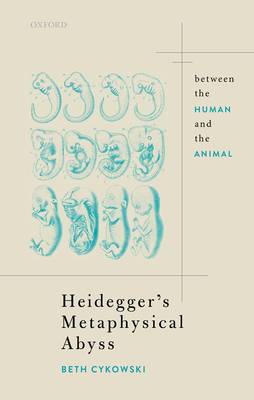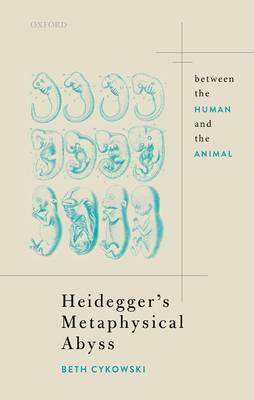
Je cadeautjes zeker op tijd in huis hebben voor de feestdagen? Kom langs in onze winkels en vind het perfecte geschenk!
- Afhalen na 1 uur in een winkel met voorraad
- Gratis thuislevering in België vanaf € 30
- Ruim aanbod met 7 miljoen producten
Je cadeautjes zeker op tijd in huis hebben voor de feestdagen? Kom langs in onze winkels en vind het perfecte geschenk!
- Afhalen na 1 uur in een winkel met voorraad
- Gratis thuislevering in België vanaf € 30
- Ruim aanbod met 7 miljoen producten
Zoeken
€ 169,45
+ 338 punten
Omschrijving
Heidegger presented reflections on animality most extensively in his 1929-30 lecture course The Fundamental Concepts of Metaphysics. In these lectures, Heidegger poses two provocative metaphysical theses: The human, he claims, is 'world-forming'; in contrast, the animal is 'poor in world.' Contemporary secondary literature has emphatically criticised these theses on account of the objection that they forge an 'abyss of essence' between human and nonhuman organisms. The theses undermine scientific developments by breaking apart the biological continuum in order to secure the human within in its own unique category, all the while leaving the world-poor animal on the other side of the abyss. Heidegger thus reinstates an outmoded dualism that he ought, on his own terms, to renounce: human versus animal. Heidegger's Metaphysical Abyss undertakes a close examination of the lecture course in order to clarify the true meaning, scope, and significance of Heidegger's theses. Drawing on other places within Heidegger's writings where the theme of animality features, Cykowski demonstrates that Heidegger's examination of animality points beyond received dualisms back to a more essential way of philosophising about life and the human's relationship to it. Heidegger thus intended to examine and illuminate, rather than simply to repeat the orthodox metaphysical hierarchies that we have inherited, and his exploration of animality raises deep questions about the status of the human within nature that continue to be important today.
Specificaties
Betrokkenen
- Auteur(s):
- Uitgeverij:
Inhoud
- Aantal bladzijden:
- 208
- Taal:
- Engels
- Reeks:
Eigenschappen
- Productcode (EAN):
- 9780198865407
- Verschijningsdatum:
- 4/04/2021
- Uitvoering:
- Hardcover
- Formaat:
- Genaaid
- Afmetingen:
- 142 mm x 218 mm
- Gewicht:
- 385 g

Alleen bij Standaard Boekhandel
+ 338 punten op je klantenkaart van Standaard Boekhandel
Beoordelingen
We publiceren alleen reviews die voldoen aan de voorwaarden voor reviews. Bekijk onze voorwaarden voor reviews.









